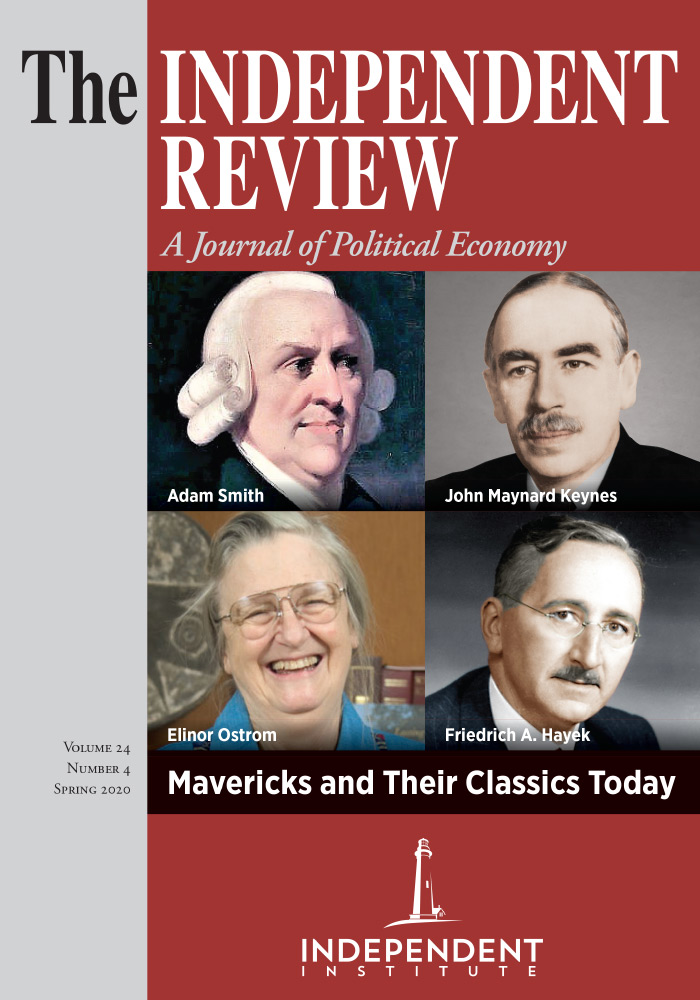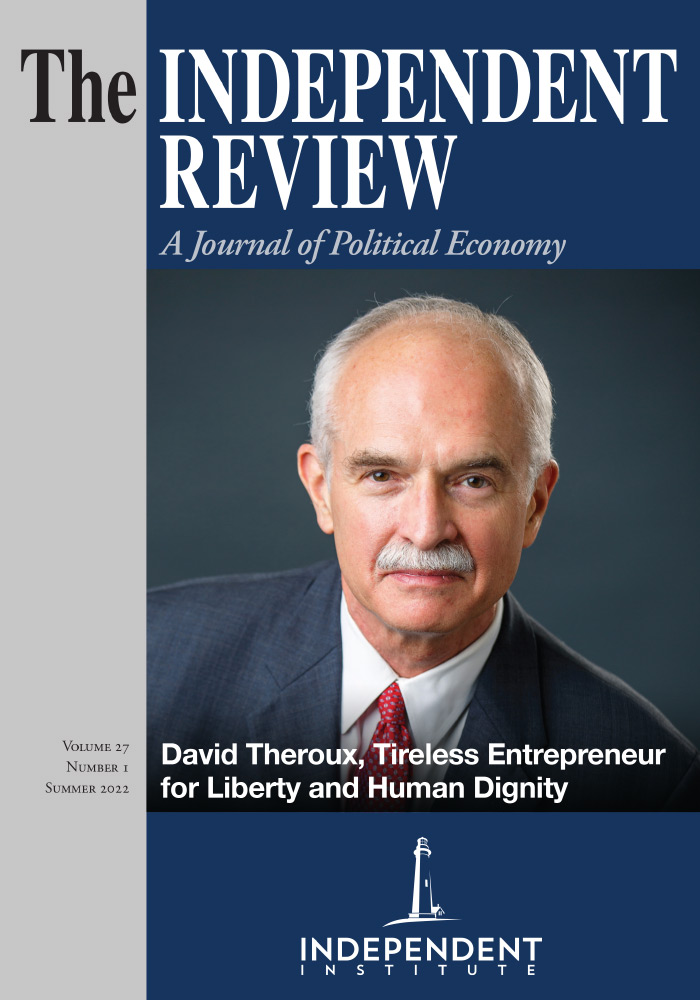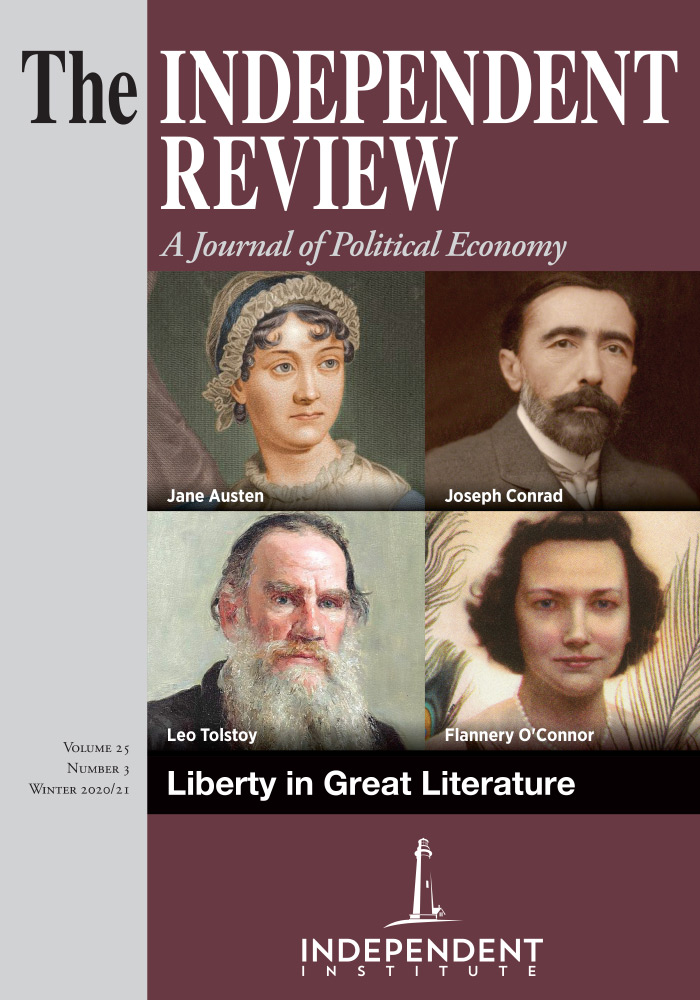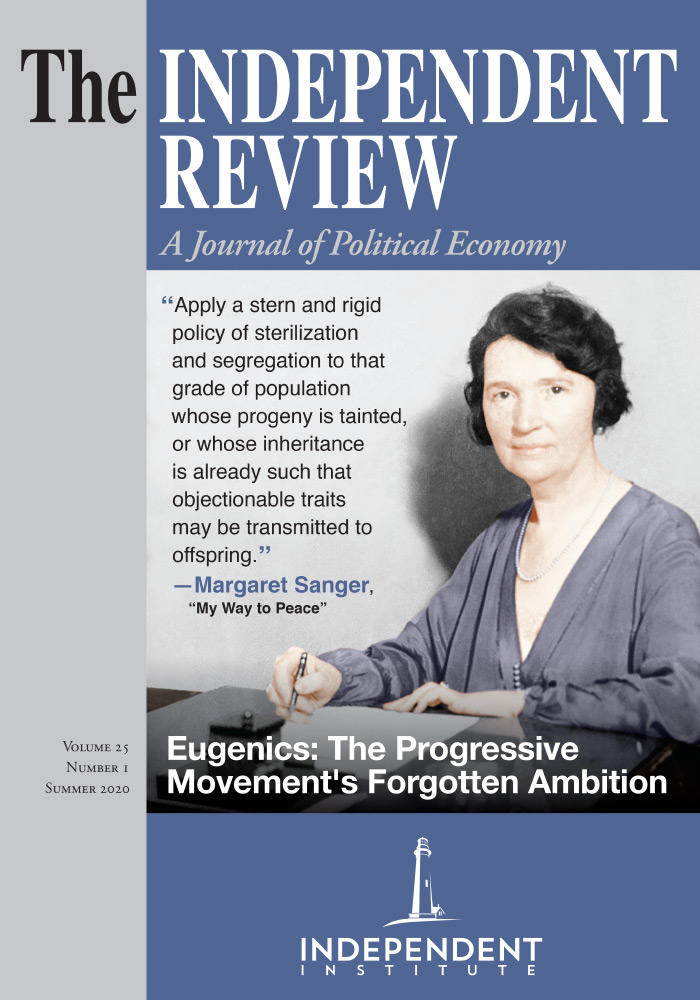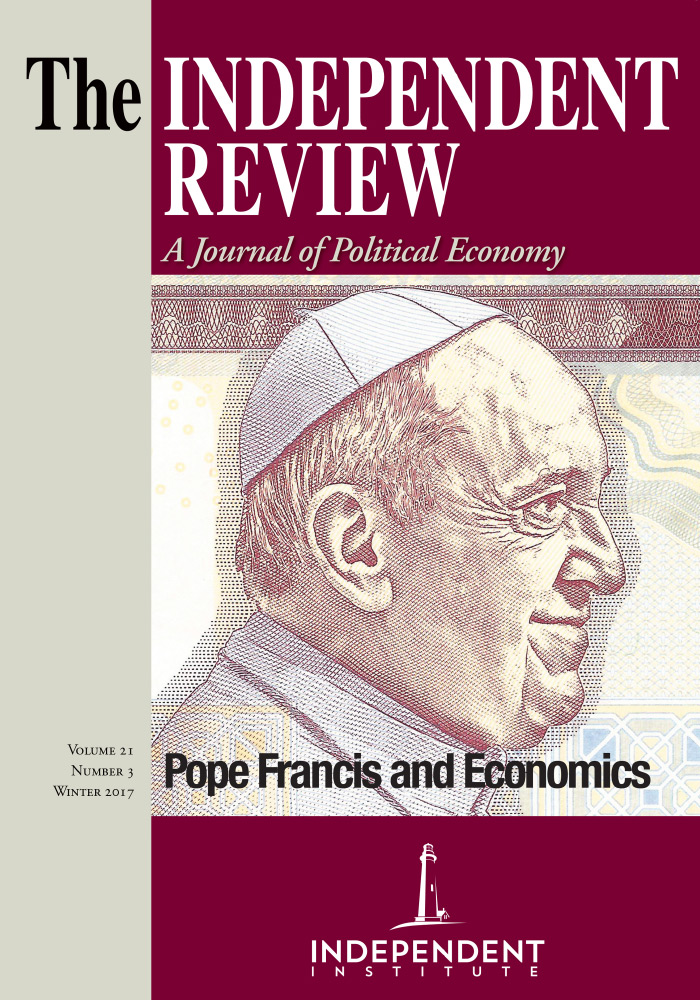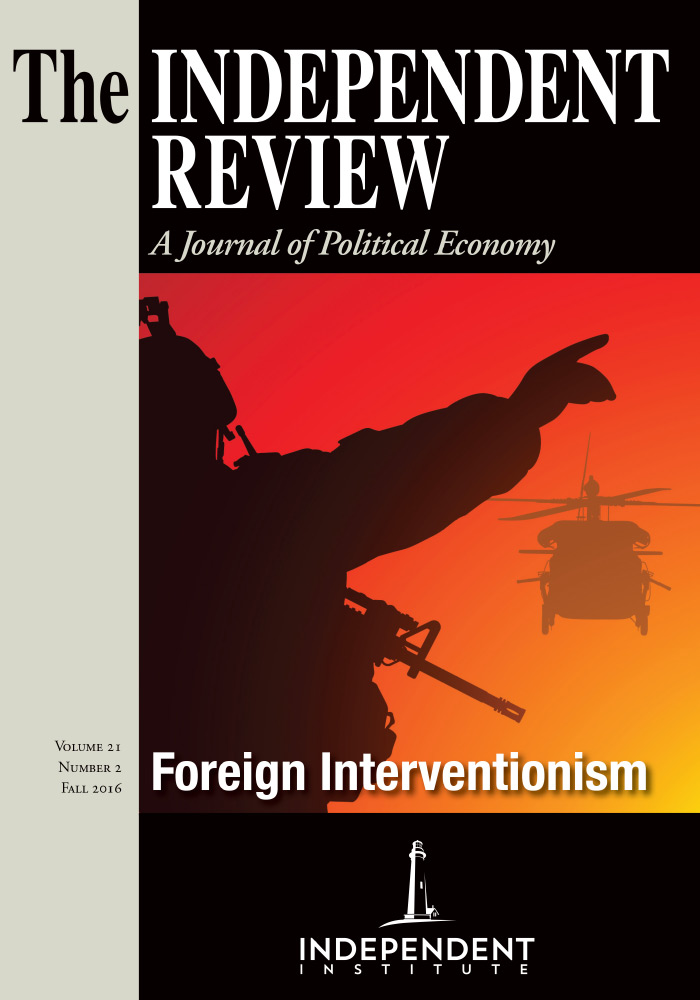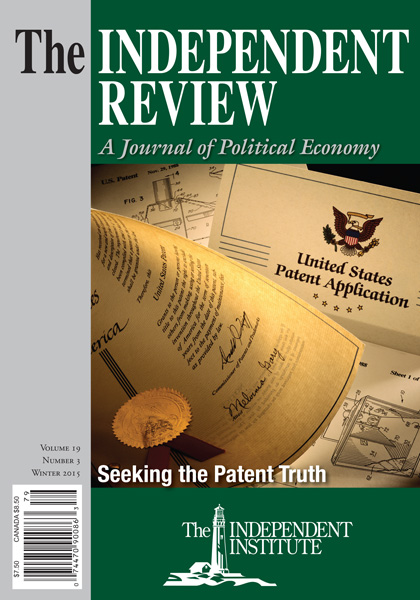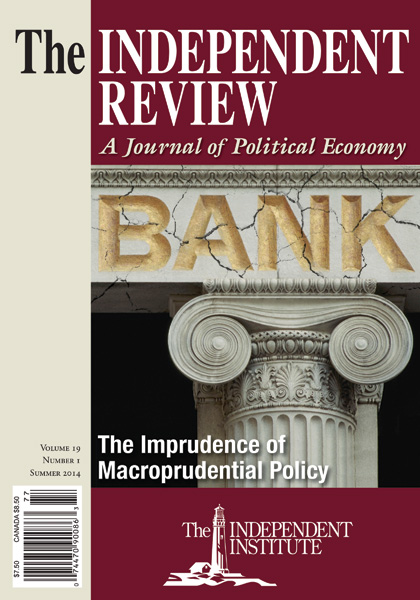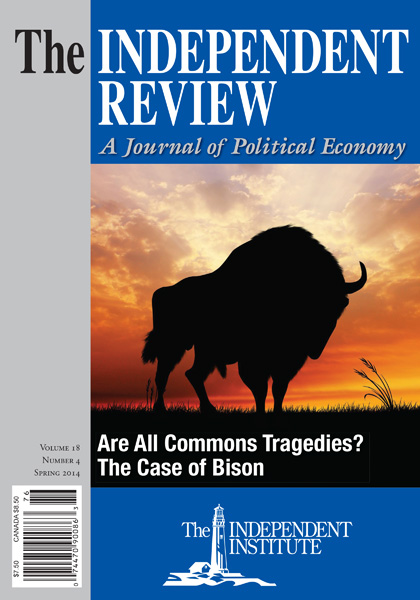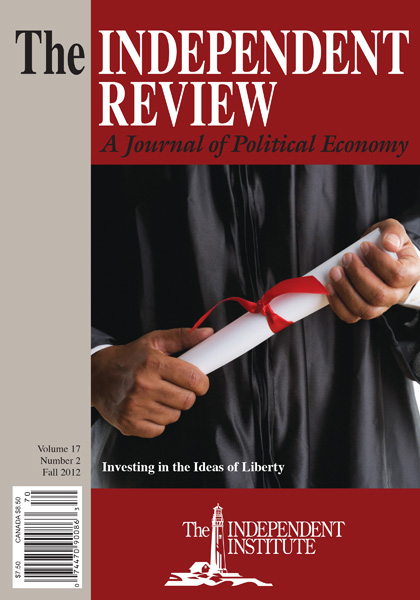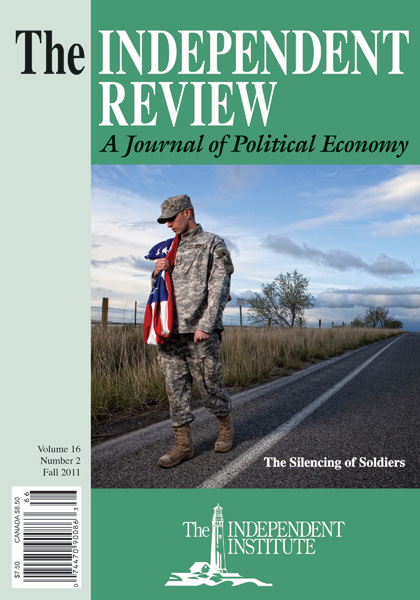Classic works of literature endure not because teachers assign them in the classroom, but because they continue to engage the imagination and touch the heart. Classic works of political economy endure because they engage our critical faculties and compel us to think deeply about topics of lasting significance, often in ways foreign to current orthodoxy.
Article
What is a “classic”? There will never be a definitive list. Yet in almost every field there are exceptional works of great influence that have changed our understanding of the world. Economics is no exception.
In this issue of The Independent Review, we have invited authors to reconsider thirteen works of enduring significance in the field of political economy. We asked them to reread a particular classic, put it into context, decide whether its arguments work, and discuss its usefulness for today. We do not propose that these works have been the most influential (although most of them have been very influential) or that the arguments in them are correct. In fact, the readermay not have previously encountered a couple of them, and several of them appear to have deep flaws. Rather, we think that they deserve a rereading (or an initial reading) because of the issues they raise and the insights they contain.
Speaking of classic works of literature, Louise Cowan explains that the classics “guard the truths of the human heart from the faddish half-truths of the day by straightening the mind and imagination and enabling their readers to judge for themselves.” Moreover, she suggests that one “should read a classic with pencil in hand. . . . The very act of underlining and annotating serves to engage the reader in a conversation with the text” (1998, 23). I will add that reading “with a pencil in hand” also allows the reader to engage in a conversation with himself or herself. A few years ago I taught a seminar on Adam Smith. I was somewhat disappointed in rereading my own copies of The Wealth of Nations and The Theory of Moral Sentiments, which I had
purchased in graduate school. The disappointment wasn’t in Smith but in my younger self for making too few marginal comments—thus depriving my older self of a glimpse of my own perspectives and insights (and errors?) from more than thirty years earlier. Writing as you read captures so many potentially brilliant ideas before they evaporate. I admonish my students not to repeat my mistake when I see that they haven’t carried on a written conversation with their texts.
The essays in this symposium are arranged in chronological order—running from Adam Smith to Elinor Ostrom: Smith, Malthus, Marx, Weber, Knight, Keynes, Mises, Schumpeter, Galbraith, Buchanan and Tullock, Jacobs, Hayek, and Ostrom. Each reader will most likely create a list of conspicuous absences. Where are Gary Becker, Milton Friedman, Henry George, Carl Menger, J. S. Mill, Douglass North, Mancur Olson, A. C. Pigou, Karl Polanyi, David Ricardo, Joan Robinson, Paul Samuelson, and Amartya Sen, for example? Where are earlier thinkers, from Aristotle to Aquinas? What about classic articles written by thinkers such as Armen Alchian, Harold Demsetz, Ronald Coase, and Anne Krueger? Unfortunately, space in The Independent Review is scarce. These thinkers will have to wait.
After you read the essays in this collection, we invite you to follow C. S. Lewis’s advice that “[i]t is a good rule, after reading a new book, never to allow yourself another new one till you have read an old one in between. If that is too much for you, you should at least read one old one to every three new ones” ([1946] 1993, 4).
References
Cowan, Louise. 1998. The Importance of the Classics. In Invitation to the Classics: A Guide to Books You’ve Always Wanted to Read, edited by Louis Cowan and Os Guiness, 19–24. Grand Rapids, Mich.: Baker Book House.
Lewis, C. S. [1946] 1993. Introduction to The Incarnation of the Word of God by St. Athanasius, 3–10. Crestwood, N.Y.: St. Vladimir’s Seminary Press.
| Other Independent Review articles by Robert M. Whaples | ||
| Summer 2024 | The Journey of Humanity: The Origins of Wealth and Inequality | |
| Summer 2024 | Of Boys and Men: Why the Modern Male Is Struggling, Why It Matters, and What to Do About It | |
| Summer 2024 | These United States: Our Nation’s Geography, History and People | |
| [View All (96)] | ||

